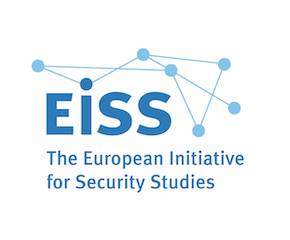Speakers
Description
Recently, Russian aggression against Ukraine and the twin prospects of Swedish and Finnish accession to NATO have refocused scholarly attention on the alliance. NATO’s responses to emerging strategic dilemmas–in part sparked by these developments–have important implications for policymakers, strategists, and citizens. Moreover, they offer immensely valuable information to security scholars, particularly in terms of testing theories of state and alliance behaviour in periods of conflict.
Given this imperative, our panel undertakes a multifaceted examination of the political and strategic implications of NATO expansion. It explores dynamics of cooperation and competition within the alliance (Seitz and Carver’s paper), outside the alliance (the papers by Larsdotter and Blanchette, respectively) and across the alliance through the politics of NATO’s borders (Micko & de Macedo’s paper).
Papers explicate salient contemporary issues for NATO and the Nordic region, including the influence of new members on the alliance’s warfighting potential, the impact of NATO ASW operations on nuclear stability in the High North, and the evolution of member states’ approaches to military support for non-member states. To approach these questions, panellists adopt diverse analytical approaches, drawing on sociological theory, operational modelling, and international relations approaches to interdependence. Empirically, they leverage diverse methodologies–from aggregate analyses to in-depth historical and qualitative work–to analyse campaign data, elite interviews, and case studies. Importantly, they recast and reevaluate old debates within a contemporary context characterised by fraught geopolitics and expanding opportunities.
Our panel features work from researchers at Oxford, the Swedish Defence University, MIT, Charles University, and the European Labour Authority, hailing from the US, Canada, Portugal, Norway, and Slovenia. Researchers comprise a majority of early-career academics within political science and international relations, military history and strategic studies, and practitioners with backgrounds at NATO and the EU. Furthermore, gender diversity is reflected by a 50-50 gender balance in panellists.
| What discipline or branch of humanities or social sciences do you identify yourself with? | International relations, war studies (history), strategic studies, and political sociology |
|---|---|
| If you are submitting an Open Panel proposal, have you included all four abstracts in attachment? | Yes, I have included all required information (see below). |
| Are you a PhD student or early-career researcher? | Yes |

